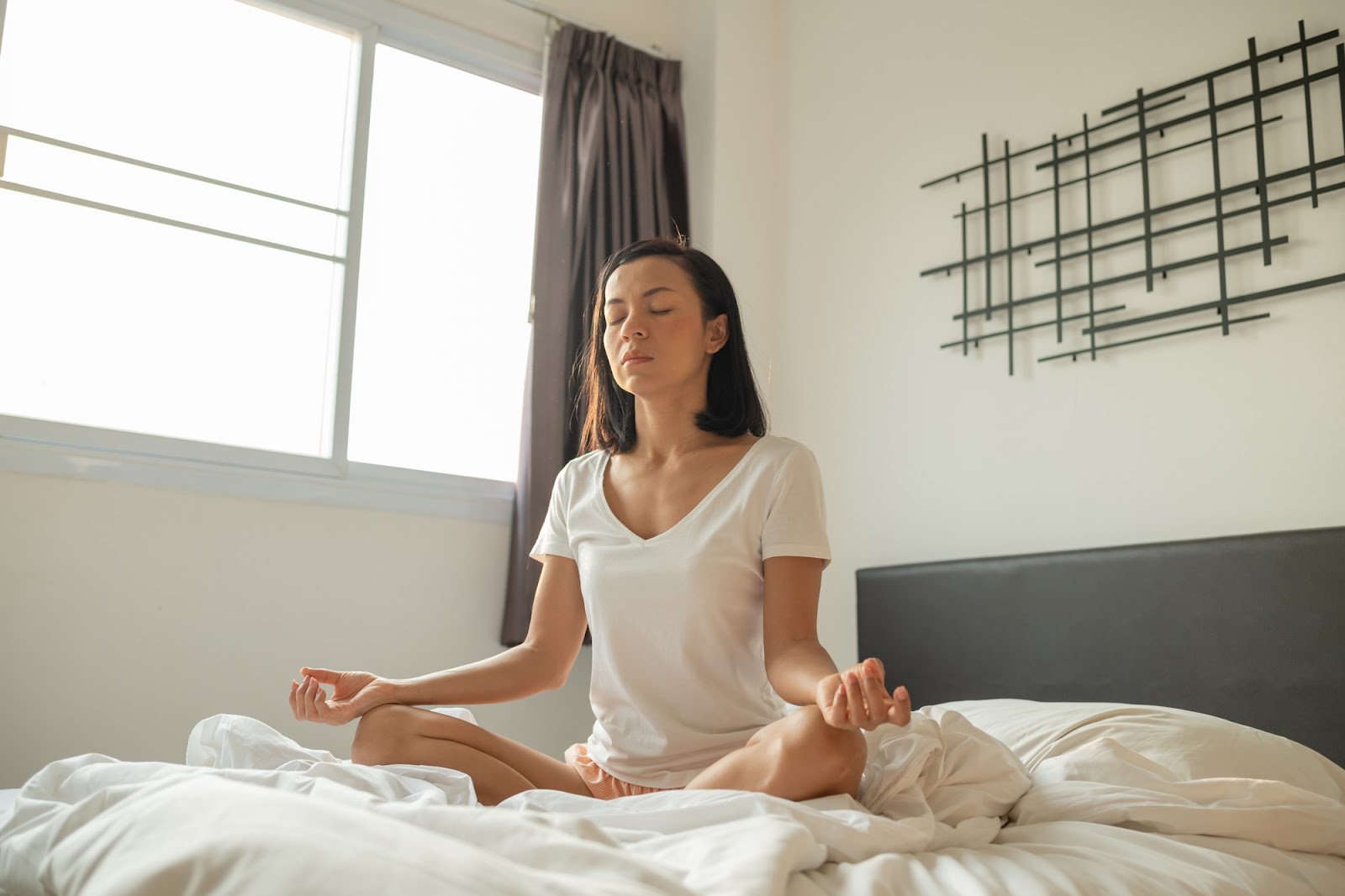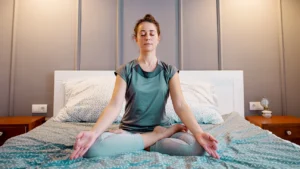Sleep is essential for your health, but many people struggle to fall asleep or stay asleep. With the stresses of modern life, stress and anxiety can be a major barrier to a good night’s sleep. Meditation and breathing exercises, however, are natural and effective ways to deal with these issues. If you do these simple, effective exercises to calm your mind and relax your body, the quality of your sleep will improve significantly.
Let’s take a look at how controlled breathing and meditation can help you sleep well every night.
How to Understand the Connection Between Your Mind and Sleep
Sleep is more than just a physiological process; it’s closely linked to how you feel and think. When your mind starts racing or you get stressed, your body goes into a state of alert, which prevents you from relaxing. Meditation and breathing exercises can help you shift your body from an anxious state to a calm state.
The parasympathetic nervous system is an important part of sleep and relaxation. It’s also known as the “rest and digest” system. This system is activated by meditation and slow, deep breathing. This slows down your heart rate and lowers cortisol (stress hormone) levels, making you feel calmer and preparing your body for sleep.
How do you meditate?
When you meditate, you clear your mind and remove all thoughts and feelings. This makes you feel mentally and emotionally calm. You can have a guide or meditate yourself. You can then focus on your breathing, chanting or the sensations in your body. There are many types of meditation, but one method that can help people sleep better is mindfulness meditation.
The most important thing is to focus on the present and not judge it. Regular meditation can help you stop thinking about the things that keep you up at night.
Why meditation can help you fall asleep
Scientists have proven that regular meditation can help you sleep better. It can help relieve insomnia by reducing feelings of worry and sadness. These are two common factors that make it difficult to fall asleep. Meditation can help people fall asleep faster, sleep longer, and feel better when they wake up.
Melatonin is a hormone that regulates sleep and is released more during meditation. When you meditate, your brain waves slow down. This makes you feel like you are in the early stages of sleep and helps you fall asleep naturally.
How Different Breathing Exercises Can Help You Relax
Meditation and deep breathing exercises go hand in hand. You can do them separately or simultaneously. When we are anxious, our breathing becomes shorter and we can become even more panicky. You can tell your brain that it is safe to relax by actively slowing down and taking deep breaths as you inhale and exhale.
Deep breathing can help lower your blood pressure, slow your heart rate, and relieve stress in your body. Doing deep breathing exercises every night before bed can help your body relax and fall asleep more easily.
Simple Ways to Help You Sleep with Meditation
Body scan meditation is a great way to do this. You lie down and focus on different parts of your body. As you meditate, you relax each part. This helps to relax your body and prevents your mind from wandering.
Another, more common method is guided meditation. This is where someone guides you through positive words or images to calm you down. You can find them on apps, YouTube videos, and recordings, all designed to help you fall asleep.
Love and kindness meditation is also a helpful activity. As you practice, you repeat positive words to yourself and others in your mind. This makes you feel safe and calm, which is conducive to your sleep.
Breathing exercises for bedtime
In terms of intensity, the 4-7-8 breathing method stands out the most:
- Take four deep breaths.
- Take seven deep breaths.
- Exhale slowly for 8 seconds.
Repeat this process four to eight times. It calms your body and mind and makes you feel at peace.
Box breathing is another great way to deal with stress. Athletes and military personnel often participate. To participate:
- Take four deep breaths
- Hold for four seconds
- Take four deep breaths
- Hold for another four seconds
Your heart rate will remain steady, your mind will be clear, and you will fall asleep more easily.
How to Create a Meditation Plan to Help You Sleep
If you want to make the most of meditation and breathing exercises to help you sleep, by all means, continue to do so. Take a few deep breaths every night before you go to bed.
Real results, backed by science
Many studies have shown that mindfulness meditation and deep breathing exercises can help people sleep better. Research from Harvard Medical School found that people with severe insomnia who practiced mindfulness meditation were able to fall asleep faster and sleep longer. Other studies have shown that meditation can help people with anxiety and depression. This is important, as both conditions can make it difficult to fall asleep.
With just a few minutes a day, you can see results after a few weeks of practice.
Final Thoughts
Meditation and breathing techniques can be a natural, drug-free way to improve your sleep. They calm the mind, relax the body, and make it easier to fall asleep. Whether you suffer from occasional insomnia or are a serious sufferer, adding these tips to your nighttime routine can make a big difference.
Be kind to yourself, start small, and remember that even brief moments of silence can help you sleep better and live a healthier, more balanced life. If you keep this up, you will not only sleep better, but also live a more peaceful life.




